Home » About RCGI » Resources » Labs
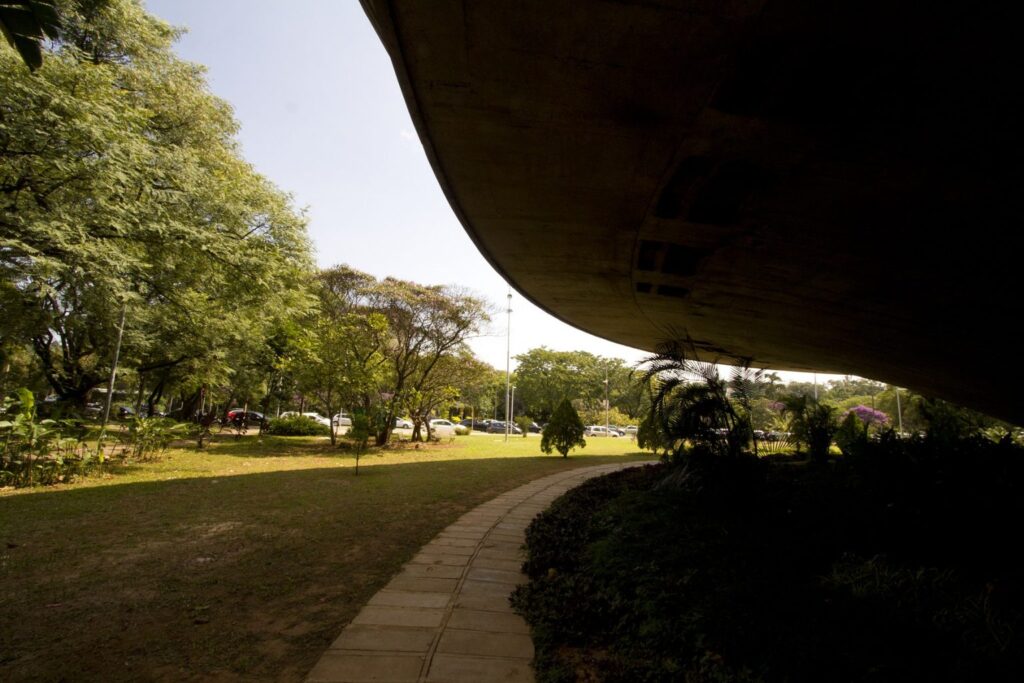
The Escola Politécnica has maintained itself, over the years, in the academic leadership of national engineering, with its reputation certified by the main independent, national and international evaluation bodies. It is the largest and most important School of Engineering in Latin America, according to the QS World University Rankings 2022 and holds the regional leadership in Latin America in the area of Engineering and Technology (QS World University Rankings by Subject 2022) in the vast majority of specialties of Engineering.

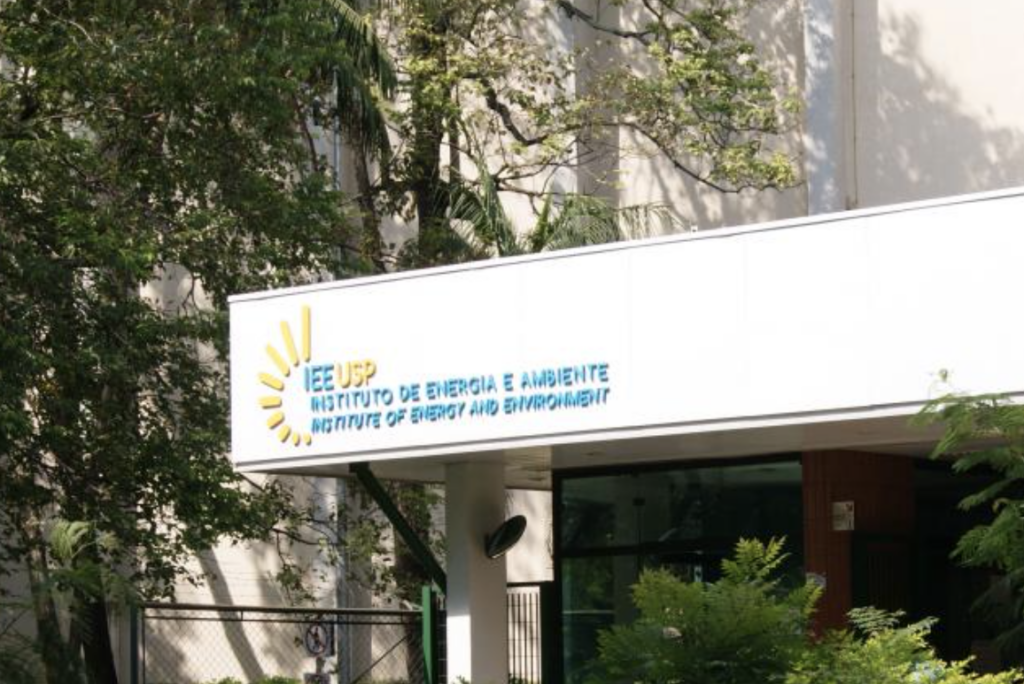
The origin of the IEE predates the foundation of USP and dates back to the creation, in 1902, of the Cabinet of Industrial and Electrotechnical Physics, at the request of the director of the Polytechnic School of São Paulo (EPSP, historically known as “Poli”) to the Secretary of State Interior Affairs and Justice. Cabinet was the synonym used at the time to name the laboratories where the practical classes took place and the classes given there were, at this stage, common to all Engineering courses.
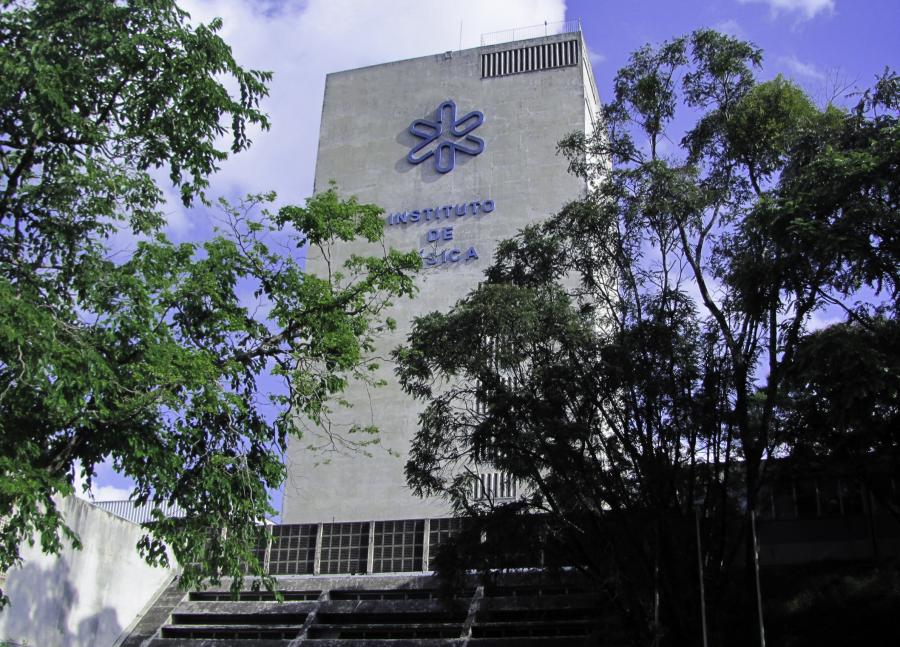
IFUSP offers exciting academic and professional training opportunities to its students at different university levels by combining the learning of knowledge accumulated in a wide range of relevant topics in contemporary physics with the qualified search for new knowledge and dedication to its dissemination in society.
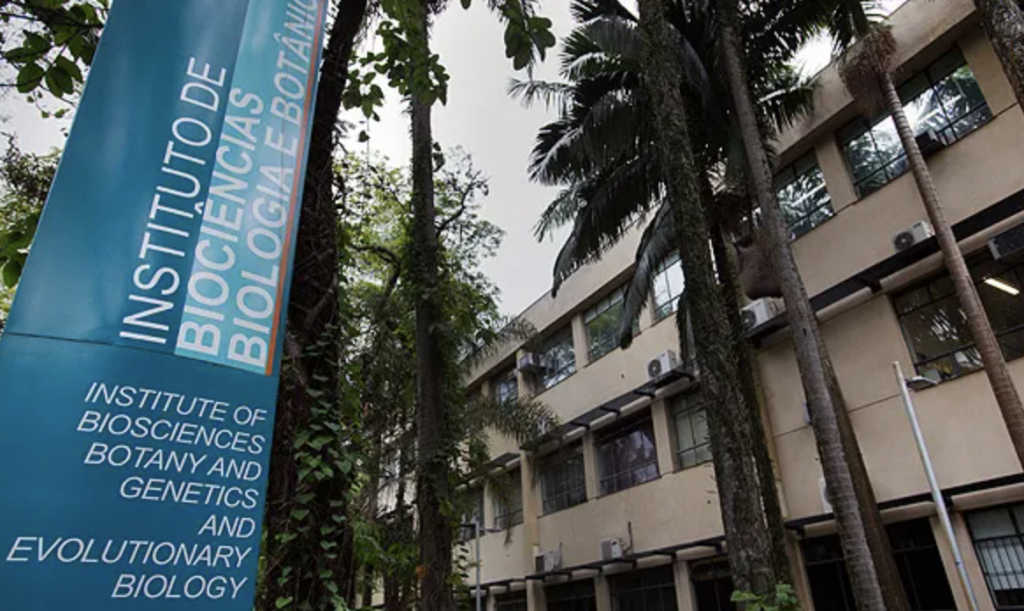
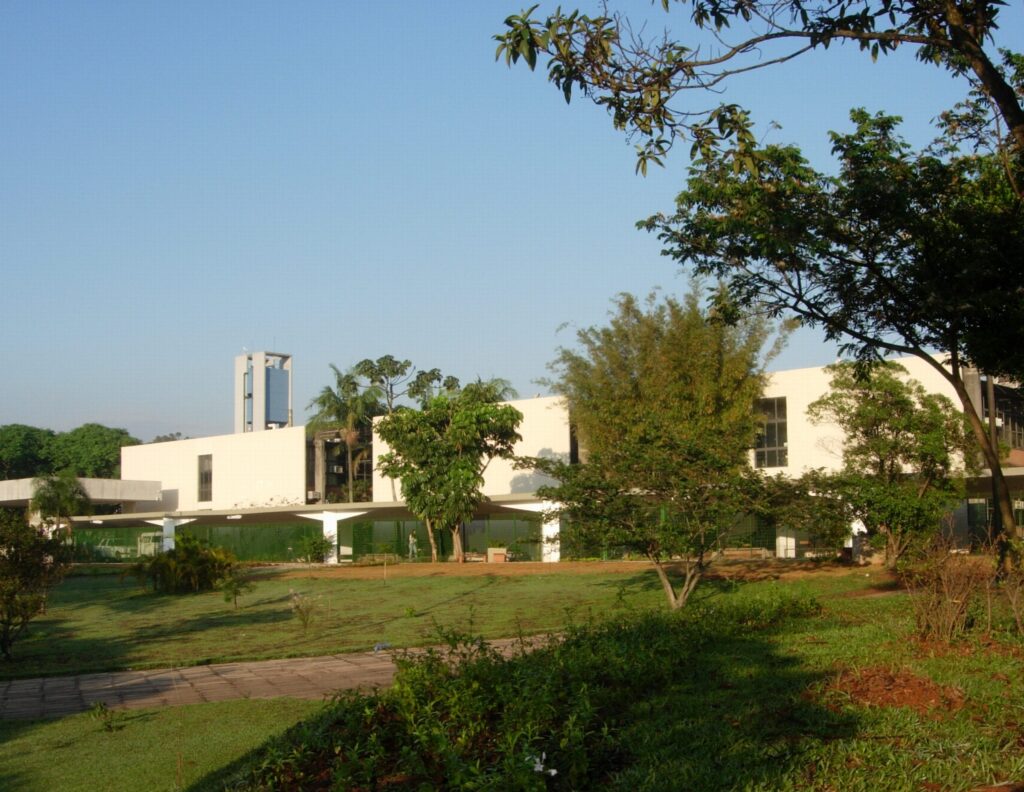
IQSC remains at the forefront of teaching and research. Its undergraduate course has received 5 stars in the annual evaluations of the Guia do Estudante da Editora Abril and its postgraduate program maintains the maximum score in the CAPES evaluation. In research, the IQSC continues, year after year, as one of the two USP Units with the highest scientific production per capita.
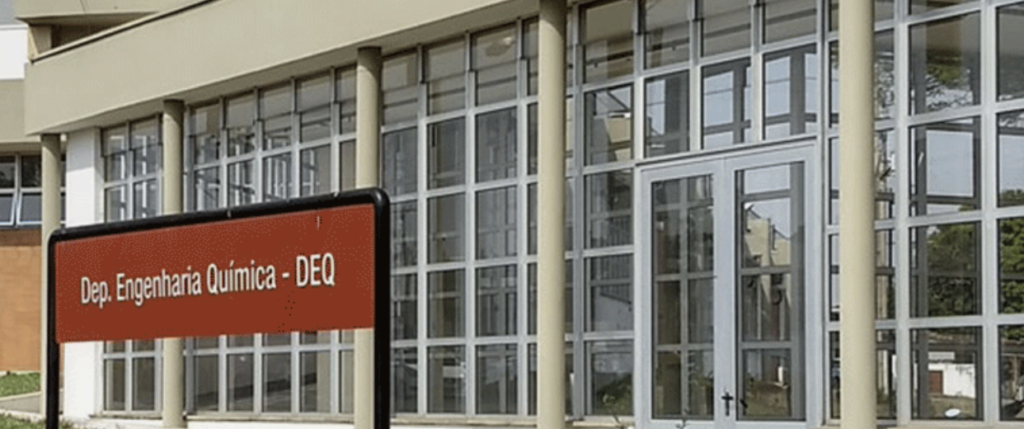
Due to its history of investing in the quality of undergraduate teaching, the EQ course at UFSCar was a constant presence in discussions about teaching. In particular, professors from UFSCar have been actively participating in all ENBEQs, Meetings on EQ Teaching in Brazil. And the innovative attitude of the course is maintained. Today, when discussing the new profile of Chemical Engineering in the 21st century, with the incorporation of a fourth field of fundamental knowledge, Biology, alongside Chemistry, Physics and Mathematics, the course turns to the same concerns that are focused on in centers of international excellence in the area.
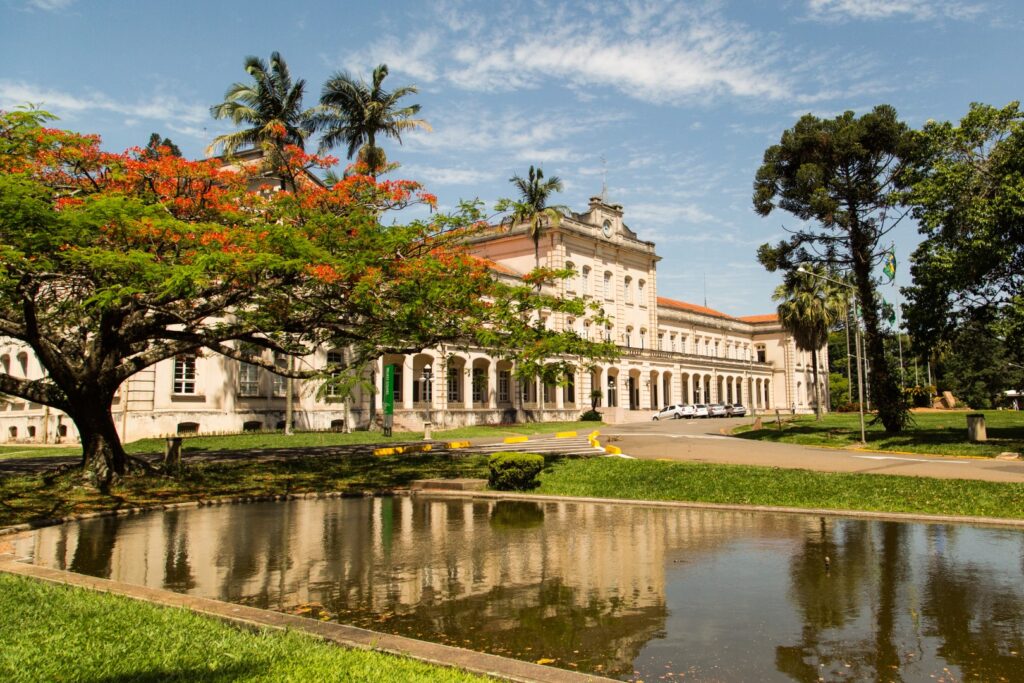
Esalq (Escola Superior de Agricultura Luiz de Queiroz) is the campus of USP (University of São Paulo) in Piracicaba/SP, however, its history begins long before the inauguration of the university, in 1901, when it officially began its activities as a school of agricultural teaching, under the administration of the Secretary of Agriculture of the State of São Paulo. From 1934, it became part of USP as one of its founding units. Its name honors its creator, Luiz Vicente de Souza Queiroz.
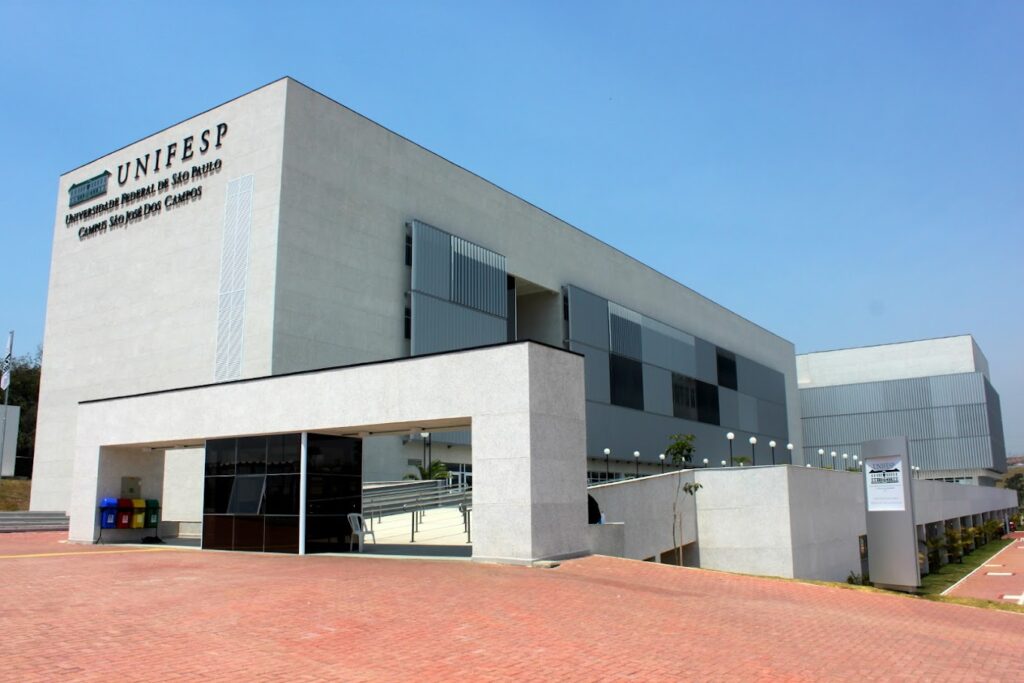
With five floors, the new building has 18 laboratories, 20 classrooms, an auditorium with 300 seats, a library with 30,000 volumes and a university restaurant with the capacity to serve 1,200 meals a day. Its strategic location allows collaboration with other universities and companies focused on technological innovation.
EMS Alberto Fossa – Maurício Salles
| Andre Luis Ferreira Marques | Solar energy and GHG: a Data Science case study in the Manaus-Parintins Axle – EMS126 |
| João Fegadolli Nunes da Silva | Assessment of Biomethane Potential for Urban Agriculture – EMS127 |
| Letícia Souza de Jesus | Enhancing Predictive Maintenance and Diagnostic Techniques for Stator Fault Detection Using Mathematical Models and Python Simulations – EMS128 |
| Stevan Henrique Ramon de Góes | Using Artificial Intelligence for Image Analysis in Monitoring the Condition of Wind Generator Blades – EMS129 |
BECCUS André Dourado – Marcos Buckeridge
| Thiago Vasconcelos de Barros Ferraz | Enabling ethanol electro-oxidation in seawater-like electrolytes for energy conversion and CO2 mitigation |
| Paula Barione Perroni | Stainless Steel as Catalyst for Ethanol Oxidation Reaction |
| Naiza Vilas Bôas | The electro-oxidation of ethanol under oscillatory regime on platinum-tin electrodes |
| Murilo Gomes de Oliveira | Study of Ethanol Electrooxidation in Oscillatory Regime for Gaining Mechanistic Insights. |
| Marilin Mariano dos Santos | Perspectives of BECCUS technologies in Brazilian sugarcane sector |
| Leandro Francisco de Oliveira | Hormonal signaling network can contribute to design strategies to improve sugarcane growth and yield |
| André Henrique Baraldi Doruado | Lignin Oxidation on CuO: (Electro)chemical Approaches |
| Gustavo Charles Peixoto de Oliveira | Computational Engineering Approaches for Geologic Carbon Storage Site Qualification in the Brazilian |
| Gabriel Godinho Capistrano | Carbon Capture Utilization and Sequestration in Basaltic Rocks from the Serra Geral Formation: A Petrographic Characterization Before and after the Co2 Injection |
| Carolina S Costa | Solvent-Free Hydrogenation of Succinic Acid into Tetrahydrofuran |
GHG Renato Picelli – Marcelo Sekler
| Fernanda de Marco de Souza | GHG emissions in wastewater treatment plants: nitrous oxide and the importance of data collection and monitoring |
| Felipe Silva Maffei | Design of smart labyrinth seals for mitigation of GHG emissions in pneumatic machines |
| Emiio carlos Nelli Silva | Design of smart labyrinth seals for mitigation of GHG emissions in pneumatic machines (compressors and turbines) |
| Renato Picelli | Efficient Turbulent Fluid-Structure Topology Optimization with Smooth Boundaries Using Sequential Integer Linear Programming |
| Diego Silva Prado | Virtual Analysis Tools for Enhancing Residence Time and Bubble Characteristics in Fluidized Beds |
| Jurandir Itizo Yanagihara | Design Optimization and Experimental Analysis of Supercritical CO2 Centrifugal Compressors– GHG2013 |
| Daniel Jonas Dezan | Metamodel-Assisted Structural Design Optimization of CO2 Centrifugal Compressor – CCUS215 |
| Maurício Silva Ferreira | Experimental setup for testing supercritical CO2 centrifugal compressors – GHG2014 |
CCUS Lucy Gomes Sant Anna – Renato Gonçalves
| Mariana Ciotta | Creating an offshore CCS HUB: challenges and opportunities |
| Marielle de Oliveira | Design Methodology for Gas-Liquid Separators in Methanol Production from CO2 |
| Daniela Costa 178 | The Importance of Reservoir Rocks and Fluids Characterization for Ccs Projects: An Experimental Study With Brazilian Rocks and Fluids |
| Diego Miranda de Souza Costa 179 | Evaluation of the influence of the use of different amino acids and superbases in the preparation of deep eutectic solvents for CO2 capture |
| Aleksandro Kirch 180 | Potential of Clay Minerals for CO2 Capture and Storage: Advances from an Atomistic Perspective |
| Allan Cavalari Telles Ferreira 181 | Challenges to evaluate CO2 storage potential in Saline Aquifers in Brazil |
| Jose Mateo Martinez Saavedra | Studying the kinetics of CO2 hydrogenation into methanol over commercial copper-based catalysts |
| Leandro Augusto Faustino | Fine-tuning of electrocatalyst/electrolyte interface for efficient reduction of CO2 and N2 towards added-value chemicals |
ETE Virginia Parente – Suani Coelho
| Thiago Giancoli Berto | Green and Yellow Hydrogen: from the federal fiscal war to global value chains – ETE119 |
| Melodie Kern Sarubo Dorth Sinegalia | Methodology Proposal for Control Point Surveys: Considerations in the Context of Remote Forest Monitoring with Emphasis on Carbon Stock – ETE120 |
| Mateus Castagnet | Carbon Footprint Reduction through the Replacement of LPG with Biodigesters: A Case Study – ETE121 |
| Leonardo de Freitas | Economic viability of hydrogen – ETE122 |
| Lauron Arend | Business Models for the Brazilian Natural Gas Market in Times of Energy Transition and National Deregulation – ETE123 |
| Jose Roberto Moreira | New Technologies for Cars – Costs, Impacts and Advantages – ETE101 |
| Jhonathan Fernandes Torres de Souza | How much would the energy transition cost for steel and cement industries in Brazil? – ETE124 |
| Felipe Nasser Armond | The Crucial Role of Energy Storage Technologies in the Global Energy Transition – ETE125 |
CCUS Lucy Gomes Sant Anna – Pedro Vidinha
| Leonardo Domenico De Angelis | Mechanistic insights of the plasmon-enhanced CO2 reduction reaction |
| Lorenzo Kesikowski Follador | Screening of Ionic Liquids for CO2RR using Molecular Dynamics |
| Louise Hase Gracioso | Utilizing Microalgae for Sustainable Biorefinery: A Path to Carbon Mitigation and Bioeconomic Prosperity |
| Luana do Nascimento Rocha de Paula | Effect of the catalyst copper loading on the ethanol production in the CO2 hydrogenation over Cu-UiO-67 |
| Lucas Rodrigues da Silva | Synthesis and Characterization of CuFeZn-based Materials as Catalysts for CO2 Hydrogenation |
| Maitê Lippel Gothe | Scale up of a ReOx/TiO2 catalyst for the CO2 hydrogenation to methanol |
| Primaggio Silva Mantovi | Controlling the Role of Water with Ionic Liquids in CO2RR Aiming C2+ Products |
| Renato Vitalino Gonçalves | Green Hydrogen Production via Photo(electro)catalysis: BiVO4 as case of study |
SRS Edmilson M. dos Santos – Karen Mascarenhas
| Dindara SIlva Galvão | Future literacy towards climate changes using theater of the oppressed – SRS205 |
| Cylon Liaw | CCUS standardization mapping – The steps towards this strategic tool – SRS206 |
| Celso da Silveira Cachola | Geospatial Analysis and Clustering of Green Hydrogen Production and Consumption for Greenhouse Gas Emission Mitigation: A Case Study of Brazil – SRS207 |
| André dos Santos Alonso Pereira | Science Diplomacy and the Sustainable Development Goals: How RCGI may use it – SRS208 |
| Alberto J. Fossa | Standardization of Carbon Dioxide Capture, Transportation, Utilization and Storage (CCUS) – Recent developments at ABNT and ISO – SRS209 |
| Maxiane Cardoso | Brazilian climate targets and the analysis of their alignment with Nationally Determined Contributions (NDCs) – SRS211 |
| Alexandre de Barros Gallo | GHG mitigation through energy management – Current standardization approaches – SRS212 |
GHG Renato Picelli – Guenther Krieger Filho
| Glycon Pena de Souza Barros | Development of labyrinth seal applied to pneumatic machines using the concept of intelligent materials to minimize leakage |
| Rômulo Luz Cortez | Compressor’s Impeller Designs: Topology Optimization for Resonance Mitigation |
| Shahin Ranjbarzadeh | Multi-objective function topology optimization design of labyrinth seal |
| Elóy Esteves Gasparin | Gas-like behavior constraint for s-CO2 Compression Train Optimization |
| Alberto Lemos Duran | Topology optimization method applied to the design of compressor impellers for supercritical CO2 |
| José Guedes Fernandes Neto | Soil carbon stocks dynamics during tropical forest restoration in Atlantic Forest |
| Jonatan Ismael Eisermann | Large eddy simulation of a dimethyl ether turbulent jet diffusion flame |
| João Baptista Dias Moreira | Integer Variable Topology Optimization applied to Full Waveform Inversion for salt reconstruction |
| Icaro Amorim de Carvalho | Topology optimisation of a rotor subjected to a transient and compressible fluid flow |
| Teresa Duarte Lanna | Li separation from production water using ZIF-67 – ETE188 |
NBS Carlos Cerri – Maurício Cherubin
Bruna Emanuele Schiebelbein Danielle Mendes Thame Denny 2 | Status of soil health in agricultural soils in Brazil using the Soil Management Assessment Framework Nature-based solutions: Sustainable development of Latin America |
| Mara Regina Moitinho | Spectral signature of synthetic Fe-rich nanoparticle in an agricultural soil |
| Marcelo Laranjeira Pimentel | Integrated crop-livestock systems and well-managed pasture promote biological activity, aggregates stability and the increase of soil organic carbon in southern Amazon, Brazil |
| Márcio José Teixeira | Deforestation Patterns Evolution of the Amazon Basin from 1985 to 2021 |
| Melida del Pilar Anzola Rojas | Potential of Hydrogen Production in Aa Microbial Electrolysis Cell From Sugarcane Vinnasse |
| Victória Santos Souza | Nature based solution: cover crops in the Cerrado and their role in greenhouse gas emissions and soil carbon distribution |
| Wanderlei Bieluczyk | On-field measurements of greenhouse gas fluxes in Brazilian low-carbon agriculture: a meta-analysis and critical insights |
| Danielle Mendes Thame Deny | Connecting carbon farming in Brazil and its implications for food (in)security in África |
| Dener Oliveira | Make the data available: an analysis of the soil C research for the Brazilian Cerrado |
| João Luis Nunes Carvalho | Land use intensification as a strategy to increase soil carbon storage and stabilization in tropical conditions |
PS Maurício Salles – Renato Monaro
| Antônio Carlos Bastos de Godoi | Cyber Defense System for Smart Grid Communications – PS130 |
| Beatriz Aline Riga Rocha | Investigation of Ni and Cu doping effects on the sintering and proton conducting behavior of BaZr0.7Ce0.2Y0.1O3-δ – PS131 |
| Demetrio Cornilios Zachariadis | Wind potential improvement through the study and mitigation of generation deviations and failures – PS132 |
| Carlos Andre Persiani Filho | UAV-Assisted Fault Detection in Electrical Distribution Systems – PS133 |
| Eduardo Coelho Marques da Costa | Parameter estimation of power transmission systems by using least square methods and optimum filtering theory – PS134 |
| Emanuel Percinio Gonçalves de Oliveira | Methodology for Obtaining an Intelligent Tool for Classifying Faults in Overhead and Underground Distribution Lines with High Penetration of Wind Sources Interfaced by Inverters – PS135 |
| Enrique Adalberto Paredes Salazar | Understanding Electrocatalytic Reactions trough Microkinetic Modeling Approaches – PS136 |
| Fátima Eduarda do Nascimento Morais | Methods for the analysis of resonance in distribution systems with high DER penetration – PS137 |
| Felipe Berto Ometto | Catalysts for hydrogen production in ethanol-fed SOEC systems – PS138 |
| Giancarlo Carvalho Prezotto | Methods for analysis and mitigation of resonances in wind farms – PS201 |
CCUS Cristina Fernanda Alves Rodrigues – Pedro Vidinha
| Ana Carolina Borges Silva | Particle resolved CFD simulations of fixed bed reactors in co2 hydrogenation |
| Priscilla J Zambiazi | Engineering porous materials MOFs-Based – Technological Applications and Dynamic Crystals |
| Andressa Mota Lima 170 | Assessment of Non-Aqueous Electrolytes for CO2 Electro-reduction via updated Walden Plot |
| Bryan Alberto Laura Larico 171 | Development of a technical catalyst for the conversion of CO2 into methanol |
| Alberto Riera J | Lattice Boltzmann methods applied to the solution of Digital Rock problems |
| Alvaro David Torrez Baptista | Geochemical CO2-basaltic rocks interactions: a first principles approach |
| Lais Reis Borges | Evaluation of intrinsic catalytic activity of rhenium catalysts at CO2 hydrogenation in a fixed bed reactor during a scale-up process |
| Lázara Hernández Ferrer | NH3 Production via N2 electroreduction in Water-in-Salt Electrolyte with a MOF Catalyst |
GHG Renato Picelli – Fernando Sacomano
| Enzo Sampronha | Modeling of Temperature-Swing Adsorption in Fluidized Bed Systems for CO2 Capture |
| Caroline Silva Matos | Experimental investigations of Brazilian oxygen carriers for the chemical looping combustion technology: from micro- to macroscale |
| Lucas Neves Braga Soares Ribeiro | Labyrinth Diode Designed by Topology Optimization of Binary Structures using Laminar Flow and Real Gas Properties with Experimental Validation |
| Juliano Fagundes Gonçalves | Solid Oxide Fuel Cell (SOFC) channel design using the Topology Optimization Method |
| Marcel Augusto Alvarenga Viegas | Digital Transformation Process Based on Automation and Data Service: a case study in sustainability projects |
| Thomás C. Miranda | Use of Automated Low-Cost Sensors for Methane (Ch4) Emissions Monitoring |
| Lucas O. Siqueira | Topology optimization of Turbulent 2D swirl Fluid-Structure Interaction Problems Applied to Labyrinth Seals Design Considering Natural Frequency Constraints |
| Lucas Ramos Deliberali Barbosa | Decarbonization policies in the industrial sector: a systematic review |
| Yuri Souza Beleli | Optimization of a continuous temperature swing adsorption system for gases originated from biomass combustion |
EnvSG Suani Coelho – Edmilson Moutinho dos Santos
| Alberto Torres Riera Junior | A Machine Learning Force Field for Boric Acid and Water – EnvSG108 |
| Ana Paula Alves Dibo | Addressing Cumulative Impact Assessment into the planning and development of offshore wind farms (…) – EnvSG109 |
| Alexander Turra | Assessment of the environmental and social impact of offshore wind energy (“EnvSoOff”) – EnvSG117 |
| Andrea Carolina Gutierrez Gomez | Municipal Solid Waste Potential for Hydrogen Production in the Sao Paulo State – EnvSG110 |
| Carlos Alberto Martins Junior | Adsorption study of H3BO3 in graphene: a computational approach – EnvSG111 |
| Daniela Higgin Amaral | Potential for electricity generation from sustainable forest management residues in Brazilian isolated systems – EnvSG112 |
| Geovanna Paulino Pereira | Winds of the Future: Multidimensional Assessment of Socio-Environmental Impacts in Offshore Wind Farms – EnvSG113 |
| Guilherme de Aquino Fernandes Sousa | How far has the low-carbon energy transition contributed to energy poverty and social exclusion? – EnvSG114 |
| Ricardo Bastos Calabrese | Integration Of Photovoltaic Energy In Urban Planning – Promoting resilience and decarbonization (…) – EnvSG115 |
| Thalles Moreira de Oliveira | Optimization study of blue hydrogen distribution as an alternative fuel to diesel in the State of São Paulo – EnvSG116 |
| Vanessa Pecora Garcilasso | Life Cycle Assessment (LCA) evaluation of the uses of vinasse produced in the Brazilian sugar sector – EnvSG118 |
NBS Carlos Cerri – Maurício Cherubin
| Lucas Tadeu Greschuk | Soil carbon storage in Brazilian drylands: status, opportunities and challenges |
| Thamirys Suelle da Silva | Soil Aggregates and Soil Organic Carbon as Quality Indicators in Crop-Livestock- Forest Integration Systems in The Brazilian Semi-Arid Region |
| Diego Silva Siqueira | Soil regeneration as a climate strategy and regenerative agriculture |
| Geraldo Lavigne de Lemos | Brazilian regulation on Nature-Based Solutions: relevance, references and gaps. |
| Giovanna Pereira Correia | Nanotechnology for hydroponic applications: Development of Metal-organic frameworks (MOFs) for nutrient releasing |
| Henrique Medeiros Vignati | Two worlds, One Goal: A comparative Analysis of Nature-Based Solutions (NBS) from the Oil Sector and the Global perspective |
| José Igor Almeida Castro | Effects of improved pasture and integrated systemas on soil carbon sequestration in Brasil |
| Laudelino Vieira da Mota Neto | Soil aggregates and carbon sycling in maize-forage intercropped systems fertilized with nitrogen |
| Daniel Aquino de Borda | Impact of Converting Pasture Areas into Sustainable Agriculture on Soil Organic Matter Dynamics |
| Letícia Oliveira Bispo Cardoso | Comparison of microalgal and cyanobacterial hydrolysate for 3G bioethanol production |
CCUS Cristina Fernanda Alves Rodrigues – Renato Gonçalves
| Renata de Toledo Cintra | Artificial photosynthesis reactions exploring mesoscale 3D printed reactors |
| Rodolfo Lopes Coppo | Cu-loaded Fe2TiO5 catalysts on CO2 reduction |
| Rosembergue Gabriel Lima Gonçalves | Evaluation of catalysts derived from MgFe-pyroaurite structure impregnated with potassium in the hydrogenation of CO2 |
| Saulo de Tarso Alves dos Passos | Enhancing Carbonate Formation in Basalts of the Serra Geral Formation |
| Sergio Brochsztain | Naphthalenediimide-containing metal-organic frameworks for mixed matrix membranes designed for CO2 separation |
| Tamara Ramalho Mignoli | Scale-up study of a pressurized reactor for converting CO2 to methanol |
| Vinicio Simizu | Tailoring Pd and Fe Catalysts for Ethanol Synthesis in CO2 Hydrogenation |
| Vinícius da Costa Santos | Synthesis of ammonium perrhenate supported catalyst |
PS Maurício Salles – Renato Monaro
| Marcel Augusto Alvarenga Viegas | Smart and Sustainable Electric Vehicle Fast Charging Station – PS139 |
| Matheus Batista Cordeiro de Souza | Parametric study of an ethanol-based solid oxide fuel cell – PS140 |
| Muhammad Zubair | Cost Modelling of LFAC Transformers: Insights and Implications – PS141 |
| Rafael Braghieri Menillo | Themes and perspectives in Agri-PV research: a global bibliometric analysis showcasing its relevance and importance to energy transition – PS142 |
| Rafael dos Santos Domingues | Li+/Na+ Separation on Production Water using 2D Materials – PS143 |
| Rooney Ribeiro Albuquerque Coelho | Real time monitoring of submarine transmission systems in offshore applications – PS144 |
| Sergio Luciano Avila | Wind turbine diagnostics based on current signatures: a review – PS145 |
| Thiago de Melo Augusto | SOFC – The future of Ethanol in the Transport sector – PS146 |
| Vinícius Soares de Mello Cerqueira | Python Tool for Cost and Loss Analysis in Offshore Energy Transmission – ´S147 |
| Washington Santa Rosa | Processing of ceria-based oxides for use as electrolyte in a solid oxide fuel cell – PS148 |
| Yuri Dionisio de Souza | Algorithm for Fault location of onshore wind farm collector network based on artificial intelligence (“faultAIfinder”) – PS149 |
SRS Edilmilson Moutinho dos Santos – Sigmar Malvezzi
| Allan Yu Iwama | Ecosystem-based management as an approach to assessing the social-environmental impacts of offshore wind energy – SRS107 |
| Guilherme Porfirio Baccari 08/11 | Risk perception associated with Carbon Capture and Storage technology in Brazil: a comparison between experts and non-experts – SRS102 |
| Gustavo Chagas de Morais | Molecularium: Immersive Experiences for Scientific Dissemination – SRS103 |
| Ricardo Pagio Betini 08/11 | How can personality influence perception and behavior towards climate change? An exploratory study – SRS104 |
| Miguel Vera Moreno | A Citizen Science Approach to improving public perception of low-carbon society: A Sentiment Analysis – SRS105 |
| Nelber Ximenes Melo | A Philosophical Framework for Sustainable Energy Planning – SRS106 |
| Bruna Eloy de Amorim 08/11 | Congress and Energy Transition: How the interests of the oil and gas sector are represented in the Brazilian Legislative – SRS202 |
| Eduardo Guedes Pereira | CCUS: Legal Developments, Policies and Challenges – SRS203 |
| Giovana Ribeiro Turquetti 08/11 | Analysing “O Estado de São Paulo’s” perspective on Bioenergy & BECCS – SRS204 |
| Karen Mascarenhas | Social Perception and Science Diplomacy on technology transitions towards a low carbon society – SRS205 |
BECCUS Hamilton Varela – Marcos Buckeridge
| Andrieza de Aquino Eslabão | Brazilian Regulation On Beccs: Gaps, References And Relevance |
| Leandro Francisco de Oliveira | Hormonal signaling network can contribute to design strategies to improve sugarcane growth and yield |
| Dawany Dionisio | Electrochemical conversion of CO2 into oxalate with negative carbon footprint |
| Débora Pagliuso | Fingerprinting agro-industrial wastes: a promise for biomaterials |
| Haline Rocha | CO2 geological storage in the Paraná Basin, Brazil: an integrated assessment of unconventional reservoirs and caprocks |
| Jessica Santos Rego | CO2 adsorption on representative feldspar mineral surfaces by first-principles calculations |
| João Vicotr Vilela Cassiano | Water confined by silica Slits |
| Sabrina Domingues Miranda | The feasibility of carbon capture technologies in wastewater treatment plants in Brazil |
| Vitor Favaretto Pinoti | Development of CRISPR-based gene editing tools and identification of herbicide resistance endowing target mutations in sugarcane |
| Verena Mandorino Kaminagakura | Energy generation in microbial fuel cell in the treatment of vinasse, removal of organic matter and nitrogen |
| Pedro Henrique de Britto Costa | High power density Solid Oxide Fuel Cells on the temperature range of 400-700 oC, an overview – ETE189 |
CCUS Lucy Gomes Sant Anna – Renato Gonçalves
| Dielle Pierotti Procópio | Conversion of CO2 into biopolymers by the regulation of polyhydroxyalkanoate (PHA) biosynthetic pathway using the photosynthetic cyanobacteria Synechocystis sp. |
| Gabriel Liscia Catuzo | CO2 hydrogenation to higher alcohols using K-promoted Cu-Fe/UiO-66 catalysts |
| Antonio Carlos Roveda Junior 175 | Surface modification of copper electrodes for electrochemical CO2 reduction |
| Bruna Bacaro Borrego 176 | Micractinium sp., mangroves, and biorefineries: A sustainable trio for third-generation ethanol |
| Aluizio José Salvador 177 | Development of a microfluidic device (rock on a chip) compatible with synchrotron techniques for in-situ monitoring of CO2 storage by rocks |
| Natalia Lima Vergilio | Geochemical Modeling Of Alteration In Pre-Salt Carbonate Reservoir Rocks In Response To Co2 Injection |
| Paulo Henrique dos Santos Santana | Stability of turbulent oxy-methane flames in an internal recirculation combustion chamber |
| Pedro Henrique de Paula Sabanay | A spectroscopic study of Superbase-based Deep Eutectic Solvents for CO2 Capture |
| Iago William Zapelini | Contributions to the lifetime widening of ZSM-5 zeolites in the ETH reaction – ETE191 |
PS Maurício Salles – Renato Monaro
| Beethoven Narváez-Romo | Carbon Emission Reductions In The University Of Sao Paulo’s Transportation – Ps196 |
| Felipe Moreira Sallazar | UAV-Assisted Fault Detection in Electrical Distribution Systems: Computational Simulation – PS157 |
| Gabriel de Castro Biage | Cable Parameter Calculation Through the Finite Element Method – PS158 |
| Giovani Giulio Tristão Thibes Vieira | Flexible Solutions to increase the hosting capacity of distributed energy resources – PS159 |
| Guilherme Broslavschi Pereira da Silva | Analyze of the impact of distributed generation capacity for voltage and reactive support in distribution system – PS160 |
| Guilherme Fidelis Peixer | Performance Assessment of Commercial and Innovative Technologies for Hydrogen Liquefaction – PS197 |
| Joelma Perez | Efficient Use Of Ethanol For Producing Hydrogen And Electricity – Ps198 |
| Julio Cesar Camilo Albornoz Diaz | Influence of NiO content on the Morphological and Electrical Properties of GDC-NiO – PS199 |
| Leandro Oliveira Martins | Optimized RED allocation to increase distributed renewable generation hosting capacity – PS161 |
| Luís Felipe Normandia Lourenço | Investigation of offshore transmission technologies on the Brazilian coast applied in oil and gas exploration and (…) – PS162 |
| Maria Laura Viana Bastos | Automated Circuit Construction for Resonance Analysis in Distributed Energy Resource Integration – PS163 |
NBS Aldo Cerri – Mauricio Cherubin
| Alisson Luiz Rocha Balbino | Exploring Metal Organic Frameworks Synthesis: A Comparative Analysis of Hydrothermal and |
| Ana Paula Cervi Ferez | Novel field-based models to monitor carbon stocks of forest under restoration in |
| Antonio Yan Viana Lima | Grazing exclusion: a nature-based solution to increase microbial activity in Brazilian desertified drylands |
| Beatriz da Silva Vanolli | Carbon stock dynamics in short-term integrated agricultural systems on sandy soils |
| Bruna Emanuele Schiebelbein | Status of soil health in agricultural soils in Brazil using the Soil Management Assessment Framework |
| Bruna Gonçalves de Oliveira Carvalho | Distinguishing microbial pathways responsible for n2o emissions in soils under |
| Catharina Weber Neiva Masulino | Nature-Based Solutions (NBS) and the Integration of Local Communities: A Sustainable Path for Socio- |
| Crislany Canuto dos Santos | Integration crop-livestock-forest systems influence soil c stock in the semi-arid of Ceara |
| Daniela Higgin Amaral | Projections of sustainable forest biomass demand as energy source in Mato Grosso |
| Letícia Beatriz Ueda Melo | From Vinasse Pollution to Green Resource: Microalgae-Assisted Biomolecule Accumulation and Toxic Compound Removal |
CCUS Colombo Tassinari – Renato Gonçalves
| Fagner Rodrigues Todão | The Role of N-Doped Carbon Structures in the Thermocatalytic CO2 Hydrogenation over Co/SiO2 Catalysts |
| Jean Castro da Cruz | Development of catalytic pathways for CO2 transformation into chemicals and materials |
| Giliandro Farias | A combined DFT and machine learning study to understand catalyst and solvent effects on the conversion of CO2 into ethanol |
| Dyovani Bruno Lima dos Santos | Exploring the Impact of Various Supports on K-Promoted Molybdenum-Based Catalysts for CO2 Hydrogenation Reaction |
| Adolfo Lopes de Figueredo | Tuning catalytic hydrogenation of fumaric acid with supercritical CO2 for GBL and THF production |
| Jorge Andrés Mora Vargas | Synthesis of New Polyurethanes from Biomass-derived Monomers |
| Giovanni Rodrigues Morselli | Interactions between CO2 and superbase in ionic liquids probed by vibrational spectroscopy |
| Gabriel Silveira dos Santos | Development of new deep eutectic solvents from low molecular mass hyperbranched polyglycerolsassociated with superbase for carbon dioxide absorption. |
CCUS Colombo – Renato Gonçalves
Kalisye Rodrigues Gilini | Optimization Methodology for Local Control for Efficient Integration of Distributed Energy Resources – PS156 |
| Lucas Santos Figueiredo | Development of a Type III generator model for electrical resonance studies in wind farms – PS150 |
| Luís Fernando Nogueira de Sá | Optimizing PEM Fuel Cell Performance with a Pseudo-3D Approach – PS151 |
| Luiza Buscariolli | Methodologies for Resonance Analysis in Power Systems with Wind Generation – PS152 |
| Maria Paula de Souza Rodrigues | Utilizing MnO2 Nanowires as Cathodes in Sodium-Ion Batteries Employing Water-in-Salt Electrolytes – PS153 |
| Mário Oleskovicz | Fault location of onshore wind farm collector network based on artificial intelligence and drone supervision (“faultAIfinder”) – PS154 |
| Marilin Mariano dos Santos | Strategic route for CO2 transportation in the state of Rio de Janeiro – PS155 |
| Marilin Mariano dos Santos | Long-term offshore systems based on large floating structures: Challenges and Opportunities for Brazil – PS192 |
| Isabela Corrêa Hillal | A survey of subsea equipment for offshore transmission systems – PS193 |
| Helena Marques Almeida Silva | Simulation of Power Inverters and Controls in Grid-Connected Wind Systems – PS194 |
| Giancarlo Carvalho Prezotto | Methods for analysis and mitigation of resonances in DER-rich distribution systems – PS195 |
| Anderson Soares da Costa Azevêdo | the topology optimization of CO2 labyrinth seal design considering forward and backward incompressible laminar fluid flow regime |
| André Dantas Freire | Numerical prediction of erosion in labyrinth seals: A Lifespan approach |
| Ben-hur Martins Portella | Numerical modeling of sources and sinks of greenhouse gases in the Amazon during the CAFE-Brazil experiment |
| Carlos Eduardo Lino | Topology Optimization Method Applied to the Design of Radial Compressors Considering Turbulent Real Gas Flow Through Fluid-Structure Interaction and Mechanical Fatigue Analysis |
| Daniela Andrade Damasceno | Computational Design of Nanostructures and Nanofluidic Systems by Coupling Molecular Simulations with Topology Optimization |
| Diego Hayashi Alonso | Rotating resonance under low density flow for machine rotor topology optimization |
| Eduardo Moscatelli de Souza | Design of stepped labyrinth seals by topology optimization |
| Enrique Vilarrasa Garcia | Influence of the SO2 adsorption on CO2 capture from flue gas using 13X zeolite |
| Jeann César Rodrigues de Araújo | Synthesis and characterisation of nanomaterials for application in nanofiltration membranes and recovery of lithium from produced water – ETE190 |
| Francisco Hélio Alencar Oliveira | GHG reduction through Topology Optimization and Additive Manufacturing |